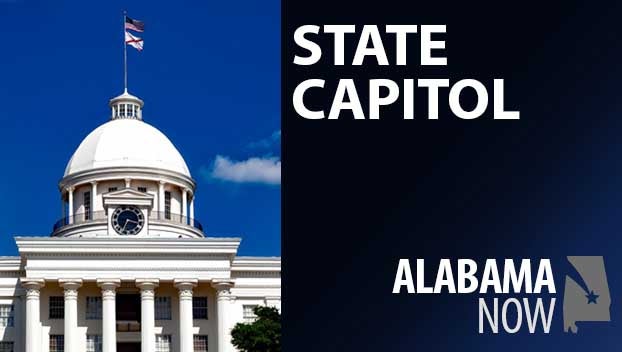Alabama lawmakers face votes on gambling, marijuana, child transgender rules
Published 1:37 pm Saturday, April 24, 2021
Alabama legislators in the closing days of the session will face decisions on gambling, medical marijuana as well as legislation that would ban the use of medications to help transgender youth transition.
House Speaker Mac McCutcheon said he expects all three measures, which have already cleared the Alabama Senate, to get votes in the House of Representatives in the final days of the session. Lawmakers plan to meet for two more weeks and then return to Montgomery for a final day on May 17.
Here is a look at the three of the issues before lawmakers in the closing days of the legislative session:
GAMBLING
The Alabama Senate approved sweeping gambling legislation that would establish a state lottery as well as allow nine casino sites in the state.
But familiar sticking points are emerging as the bill heads to vote in the Alabama House: Where the casinos will be located and how the state will use gambling revenue. If approved by lawmakers, the proposed constitutional amendment would go before voters.
In addition to a state lottery, casino sites would be located in: Jefferson, Mobile, Macon, Greene and Houston counties; a north Alabama site in Jackson or DeKalb county; and the three sites owned by the Poarch Band of Creek Indians.
The casino licenses would be put out for bid. However, the existing dog tracks and electronic bingo operations, such as Greenetrack and VictoryLand dog tracks, would be given an opportunity to come in and make a final bid to exceed the highest bidder to win the license in their respective county. The Poarch Creeks will have the right for the final bid for the site in north Alabama.
In trying to muster enough votes for passage, the bill gives an advantage to the largest existing gambling operators, although courts have ruled against the legality of electronic bingo machines, but excludes smaller operators.
Democratic Sen. Malika Sanders Fortier, who has been absent from the session because she is undergoing cancer treatment in Texas, is urging lawmakers to also include an existing bingo operator in Lowndes County, which has one of the highest unemployment rates in the state.
“How can we forcibly close the doors of a business that has existed for 20 years (in one form or another) in a small rural impoverished community like Lowndes County?” she said in an emailed statement.
MEDICAL MARIJUANA
The legislation by Republican Sen. Tim Melson of Florence would allow people with a qualifying medical condition to purchase marijuana after getting a recommendation from a doctor. More than one dozen conditions, including cancer, a terminal illness and chronic pain, would allow a person to qualify.
The bill would allow marijuana in forms such as pills, skin patches and creams but not in smoking or vaping products.
The House has traditionally been more skeptical of medical marijuana proposals. A medical marijuana bill in 2013 won the “Shroud Award” for the “deadest” bill that year in the House of Representatives. Melson has expressed optimism about the bill’s chances this year after years of setbacks.
“I think it’s going to be a close vote. I really do because there are many members who are supportive of the medical aspect. Some feel like it may be an opportunity for marijuana to come into our state and be a gateway drug,” McCutcheon said.
TRANSGENDER TREATMENT BAN
Arkansas this year became the first state to ban gender confirming treatments for transgender youths. Alabama could become the second.
The Alabama bill would make it a felony, punishable by up to 10 years in prison, for a doctor to prescribe puberty-blockers or hormones or perform surgery to aid in the gender transition of people 18 years old or younger.
“Children aren’t mature enough to make these decisions on surgeries and drugs. The whole point is to protect kids,” bill sponsor Republican Sen. Shay Shelnutt, R-Trussville, said after the Senate vote.
Supporters say they are trying to protect children from decisions that should wait until adulthood. Opponents, including parents and trans youth, say such measures interfere with medical decisions and target trans individuals for the sake of politics.
“I ask you to take a look at our family. How am I hurting me or anyone else by wanting medical hormonal treatment? I do not want to be a pawn in a political agenda in which I was never consulted about,” Phineas Smith, a 16-year-old transgender boy, told reporters during a press conference.
Opponents say the bill will almost certainly be challenged because it singles out one type of medical decision.




